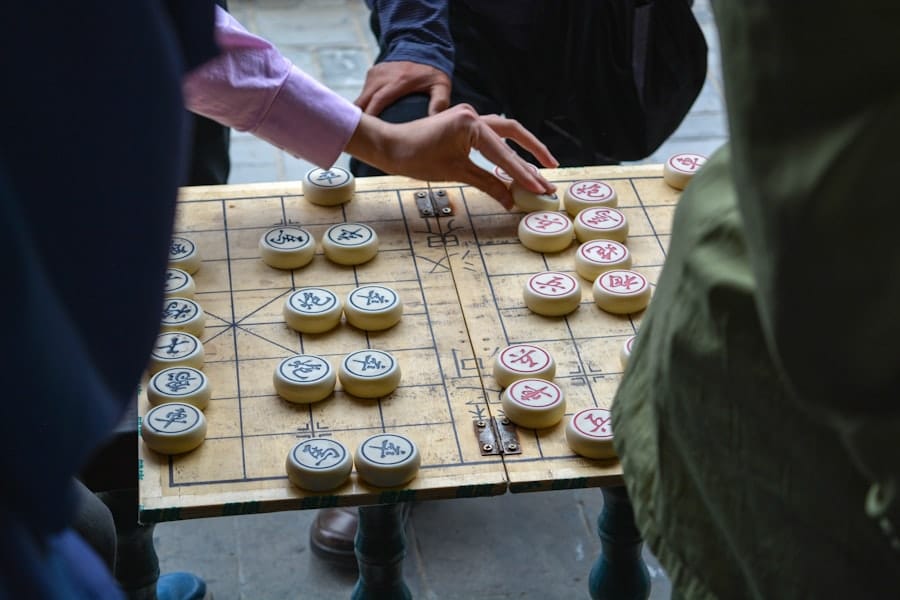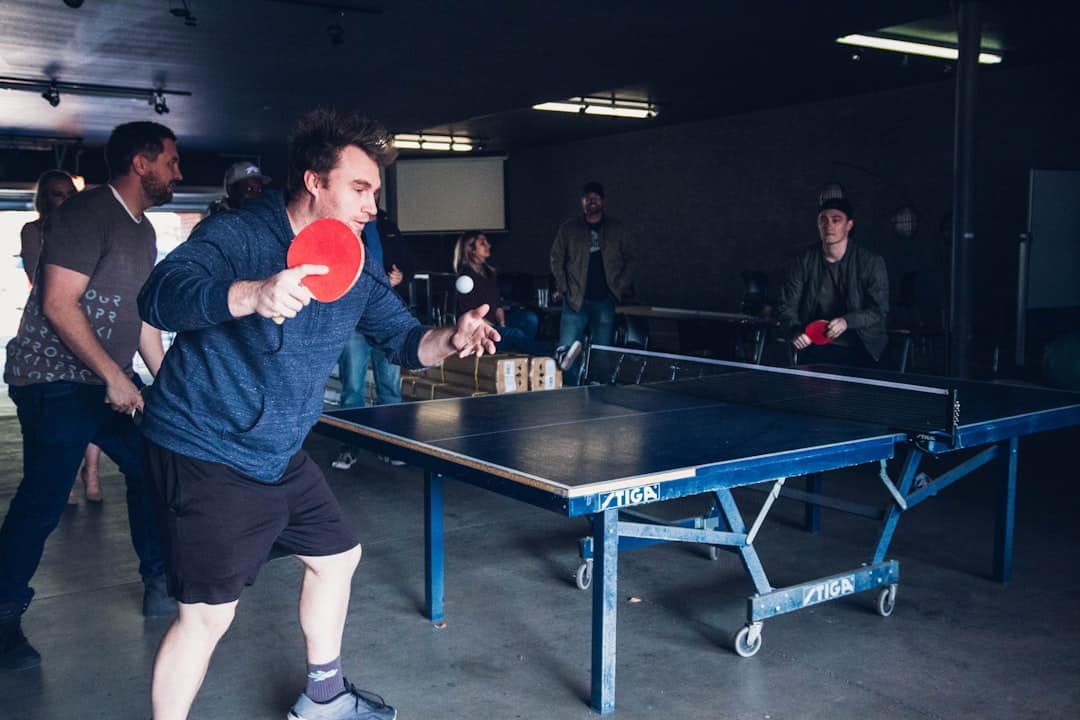In recent years, the landscape of emergency response training has undergone a significant transformation, largely due to the advent of serious games. These are not merely recreational activities; they are designed with a specific educational purpose in mind, often simulating real-world scenarios that emergency responders might face. The rise of serious games can be attributed to several factors, including advancements in technology, the need for more engaging training methods, and the increasing complexity of emergency situations.
Traditional training methods, which often rely on lectures and static simulations, are being supplemented or replaced by interactive and immersive experiences that serious games provide. The integration of serious games into emergency response training has been fueled by a growing recognition of the importance of experiential learning. Studies have shown that individuals retain information more effectively when they engage in hands-on activities rather than passive learning.
Serious games allow trainees to practice decision-making, teamwork, and problem-solving skills in a controlled environment where they can make mistakes without real-world consequences. This shift towards experiential learning is particularly crucial in emergency response, where the stakes are high, and the ability to think critically under pressure can mean the difference between life and death.
Key Takeaways
- Serious games are increasingly being used for emergency response training due to their effectiveness in simulating real-life scenarios and engaging trainees.
- Using serious games for training emergency responders can lead to improved decision-making, teamwork, and communication skills, as well as reduced training costs and risks.
- Realistic scenarios in serious games for emergency response training can help trainees experience high-stress situations and develop critical thinking and problem-solving skills.
- Technology plays a crucial role in serious games for emergency response training, enabling realistic simulations, virtual environments, and interactive learning experiences.
- Serious games have been shown to enhance the effectiveness of emergency response training by improving trainee performance, knowledge retention, and overall preparedness for real-life situations.
The Benefits of Using Serious Games for Training Emergency Responders
Enhanced Engagement and Motivation
Traditional training methods can be monotonous, leading to disengagement and reduced retention of information. In contrast, serious games create an interactive environment that captivates participants’ attention, making learning enjoyable and fostering a sense of competition and achievement.
Development of Critical Soft Skills
Serious games provide a platform for responders to develop essential soft skills such as communication, teamwork, and leadership in a safe and controlled environment. These skills are best learned through practice, and games offer a unique opportunity for responders to hone their skills in high-pressure scenarios.
Improved Team Dynamics
The collaborative aspect of serious games not only enhances individual competencies but also strengthens team dynamics, which is vital in real-life emergency situations. By working together to respond to simulated emergencies, responders can develop the skills and strategies necessary to respond effectively in real-world scenarios.
Incorporating Realistic Scenarios in Serious Games for Emergency Response Training

The effectiveness of serious games in emergency response training largely hinges on the realism of the scenarios presented. Incorporating authentic situations that responders may encounter ensures that the training is relevant and applicable to their roles. Developers of serious games often collaborate with subject matter experts—such as firefighters, paramedics, and law enforcement officials—to create scenarios that accurately reflect the challenges faced in the field.
For example, a game might simulate a multi-casualty incident where players must triage patients, manage limited resources, and coordinate with various agencies. Realistic scenarios not only enhance the training experience but also prepare responders for the unpredictability of actual emergencies. In a controlled gaming environment, trainees can experiment with different strategies and observe the outcomes without the risk associated with real-life situations.
This trial-and-error approach fosters critical thinking and adaptability—skills that are essential when responding to dynamic and evolving emergencies. Furthermore, by facing realistic challenges in a safe environment, responders can build confidence in their abilities, which is crucial when they transition from training to real-world applications.
The Role of Technology in Serious Games for Emergency Response Training
Technology plays a pivotal role in the development and implementation of serious games for emergency response training. Advances in virtual reality (VR), augmented reality (AR), and simulation technologies have revolutionized how training is delivered. VR allows trainees to immerse themselves in lifelike environments where they can practice their skills without physical constraints.
For instance, a VR simulation might place responders in a burning building where they must navigate smoke-filled rooms while locating victims. This level of immersion enhances situational awareness and prepares responders for the sensory overload they may experience during actual emergencies. Additionally, technology enables the collection and analysis of data during gameplay, providing valuable insights into trainee performance.
Game developers can track metrics such as decision-making speed, accuracy, and collaboration levels among team members. This data can be used to identify areas for improvement and tailor future training sessions to address specific weaknesses. Furthermore, technology facilitates remote training opportunities, allowing responders from different locations to participate in collaborative exercises without the need for physical presence.
This flexibility is particularly beneficial for organizations with limited resources or those operating in geographically dispersed areas.
The Impact of Serious Games on the Effectiveness of Emergency Response Training
The impact of serious games on the effectiveness of emergency response training is becoming increasingly evident through various studies and evaluations. Research has shown that trainees who engage with serious games demonstrate improved knowledge retention and skill application compared to those who undergo traditional training methods. For example, a study conducted by researchers at a leading university found that participants who trained using serious games scored significantly higher on practical assessments than their peers who received conventional instruction.
Moreover, serious games have been shown to enhance critical thinking and decision-making skills under pressure. In emergency situations, responders must often make quick decisions with limited information. Serious games simulate these high-stakes environments, allowing trainees to practice their judgment and reasoning skills in a safe context.
The ability to analyze situations rapidly and respond effectively is crucial for successful emergency management, and serious games provide an ideal platform for developing these competencies.
Challenges and Limitations of Using Serious Games for Training Emergency Responders

Despite the numerous advantages associated with serious games in emergency response training, several challenges and limitations must be addressed. One significant concern is the potential for over-reliance on technology. While serious games offer immersive experiences, they cannot fully replicate the complexities and unpredictability of real-life emergencies.
Trainees may become accustomed to the structured environment of a game and struggle to adapt when faced with actual chaotic situations. Therefore, it is essential to balance serious game training with traditional methods that expose responders to real-world challenges. Another challenge lies in the development and implementation costs associated with serious games.
Creating high-quality simulations requires significant investment in technology, design expertise, and ongoing maintenance.
Additionally, there may be resistance from some trainers or organizations who are accustomed to traditional methods and skeptical about the effectiveness of serious games.
Overcoming these barriers requires demonstrating the tangible benefits of serious games through pilot programs and success stories.
The Future of Serious Games in Emergency Response Training
The future of serious games in emergency response training appears promising as technology continues to advance and organizations recognize the value of innovative training methods. As virtual reality and augmented reality technologies become more accessible and affordable, we can expect an increase in their integration into serious games for emergency response training.
Moreover, as data analytics becomes more sophisticated, trainers will be able to leverage insights gained from serious games to refine their curricula continually. By analyzing trainee performance data, organizations can identify trends and tailor their training approaches to meet specific needs effectively. This data-driven approach will not only improve individual performance but also enhance overall team dynamics during emergency responses.
Case Studies and Success Stories of Serious Games in Training Emergency Responders
Numerous case studies highlight the successful implementation of serious games in emergency response training across various sectors. One notable example is the use of a serious game called “Crisis City,” developed by researchers at the University of Southern California’s Institute for Creative Technologies. This game simulates a large-scale disaster scenario where players must coordinate rescue efforts while managing limited resources and navigating complex challenges.
Evaluations showed that participants who trained using Crisis City demonstrated improved decision-making skills and better teamwork compared to those who underwent traditional training. Another success story comes from the fire service sector, where departments have adopted serious games like “Firefighter Simulator.” This game allows trainees to experience firefighting scenarios virtually, including navigating hazardous environments and making critical decisions under pressure. Feedback from participants indicated that they felt more prepared for real-life emergencies after completing the simulation, highlighting its effectiveness as a training tool.
These case studies exemplify how serious games can enhance emergency response training by providing realistic scenarios that foster engagement, critical thinking, and teamwork among responders. As more organizations recognize these benefits and invest in serious game development, we can expect continued growth in this innovative approach to training emergency responders.
A related article to “How Serious Games Are Training Emergency Responders” discusses the benefits of using smartwatches for tracking health and fitness goals. Smartwatches have become increasingly popular for their ability to monitor heart rate, track steps, and even provide notifications for incoming calls and messages. To learn more about the latest smartwatches on the market, check out this article.
FAQs
What are serious games?
Serious games are games designed for a primary purpose other than pure entertainment. They are used for training, education, simulation, or other practical purposes.
How are serious games used to train emergency responders?
Serious games are used to simulate emergency scenarios, allowing responders to practice their decision-making, communication, and problem-solving skills in a safe and controlled environment. This can include scenarios such as natural disasters, terrorist attacks, or medical emergencies.
What are the benefits of using serious games for emergency responder training?
Serious games provide a realistic and immersive training experience without the risks associated with real-life emergencies. They also allow for repeated practice and feedback, helping responders to improve their skills and readiness.
What are some examples of serious games used for emergency responder training?
Examples of serious games used for emergency responder training include virtual reality simulations of disaster scenarios, interactive role-playing games for communication and decision-making training, and mobile apps for on-the-go skill practice.
Are serious games effective for training emergency responders?
Research has shown that serious games can be effective for training emergency responders, improving their knowledge, skills, and confidence in handling various emergency situations. However, they are often used as part of a broader training program that includes hands-on practice and traditional classroom instruction.

